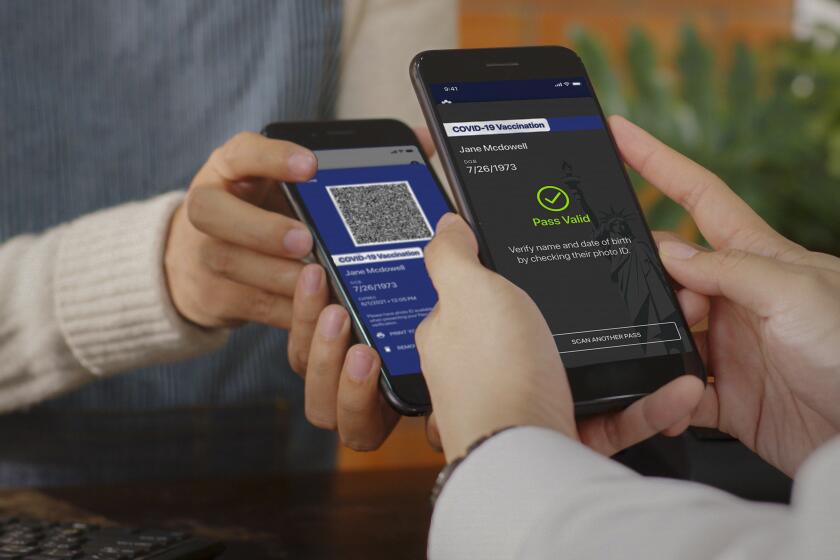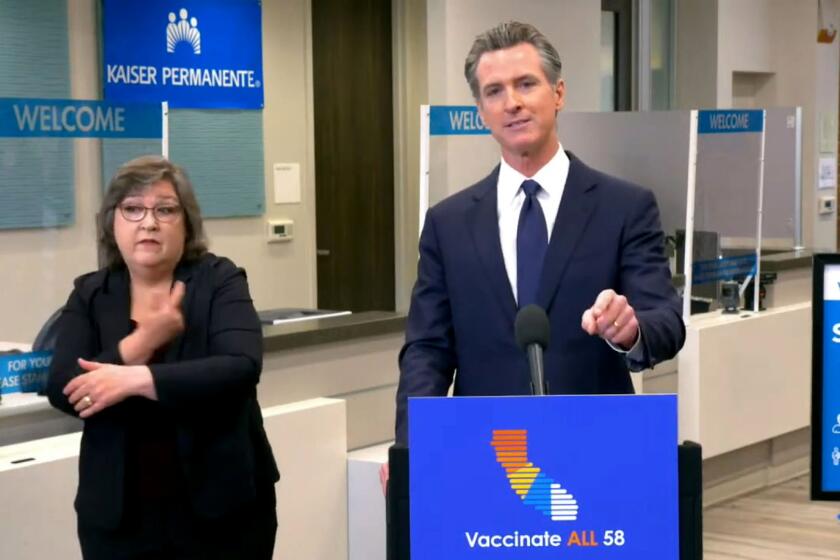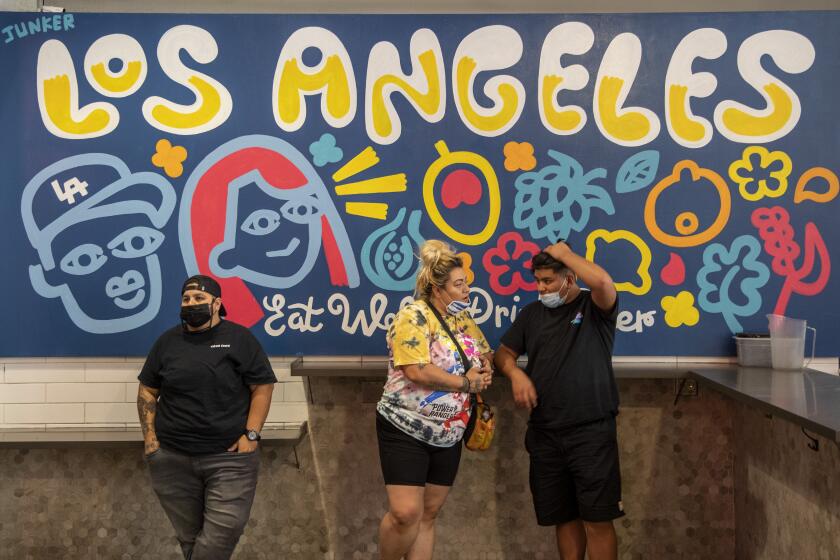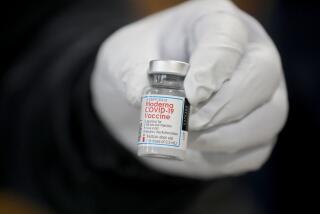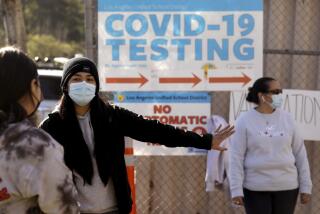Can employers force workers to get vaccinated? Here’s what we know
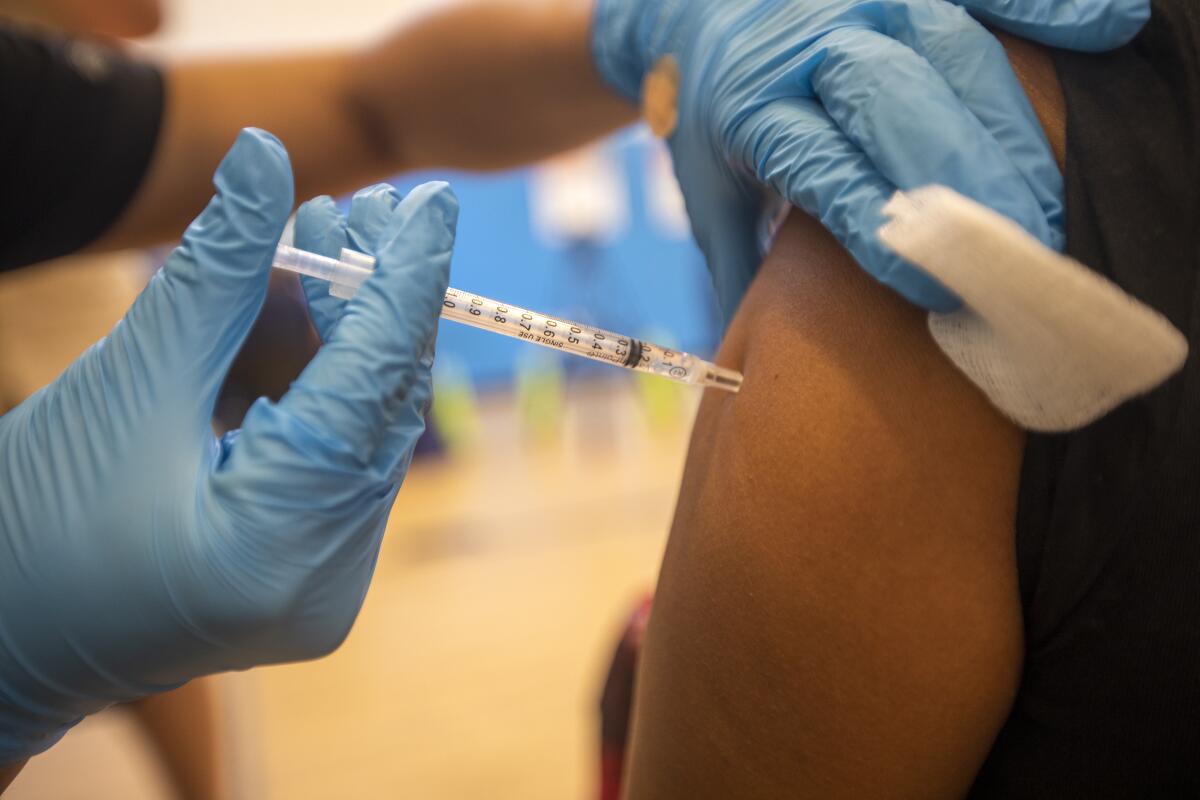
SAN FRANCISCO — Los Angeles and a growing number of other government entities are taking a new stand in the fight against the coronavirus.
They are requiring employees to provide proof of vaccination against COVID-19 or undergo weekly testing to show they are negative for the illness.
The move gets to the heart of an issue that both public and private employers have been grappling with: Can companies require workers to be vaccinated?
This is something that will surely be litigated in the courts in the coming months and years as more employers demand vaccinations.
California officials said Monday that state employees and healthcare workers would soon be required to show proof they’ve been vaccinated or undergo regular testing. New York City declared similar plans.
San Francisco and Pasadena have also announced future vaccination requirements for their employees; both cities have hitched their requirements to the U.S. Food and Drug Administration’s granting full formal approval to at least one of the COVID-19 vaccines now under emergency authorization. The University of California system also announced last week it would require vaccines for all students, faculty and others for the fall term.
The federal government isn’t willing to make a digital pass or app that attests to a person’s vaccination status. Several companies are trying to fill the void.
What are the legal issues?
Legal experts said many of the specific questions surrounding COVID-19 vaccination requirements are being hashed out in court.
Healthcare and child-care workers have frequently been required to have certain immunizations, but broader rules covering all employees have been less common in recent history, generally because people are expected to have been vaccinated against illnesses as children, said Lindsay Wiley, a professor at American University Washington College of Law.
Wiley said those who have challenged COVID-19 rules have argued that government agencies cannot mandate a vaccination that has emergency authorization, rather than formal FDA approval, and that such rules violate individual rights or infringe on religious liberty.
California government and healthcare employees will soon be required to show proof they’ve been vaccinated against COVID-19 or be tested regularly.
What have courts said in the past?
Courts have previously upheld laws requiring compulsory vaccination: In 1905, the U.S. Supreme Court upheld state laws that require vaccination against communicable diseases. The case stemmed from a Massachusetts law that permitted city health boards to enforce mandatory, free vaccination requirements for adults over 21.
In a 7-2 decision, Justice John Marshall Harlan wrote that “the rights of the individual … may at times, under the pressure of great dangers, be subjected to such restraint, to be enforced by reasonable regulations, as the safety of the general public may demand.”
Although those questions are still being “actively litigated,” Wiley said, courts have not seemed very receptive to those arguments. In New Mexico, a federal judge declined to immediately block a COVID-19 vaccination requirement that covered firefighters, officers at detention centers and other workers in Doña Ana County while a legal challenge is pending.
The new recommendation appears to be more expansive than the latest guidance from the U.S. Centers for Disease Control and Prevention.
How about special cases?
Richard W. Warren, a Detroit-based lawyer who represents employers throughout the country, said district judges in Texas and Indiana have recently rejected challenges to mandate COVID-19 vaccinations — one by a hospital, the other by a university.
“Not a single decision that I have seen treated the vaccine differently because it has only been conditionally approved,” Warren said.
Warren said exemptions must be made, however, for workers with disabilities or religious beliefs against vaccination, and employers can ask workers for notes from physicians or pastors to be excused from a requirement.
In May, the U.S. Equal Employment Opportunity Commission said federal law permits private employers to require that workers be vaccinated, as long as there are accommodations for disabilities and religious beliefs.
“Federal EEO laws do not prevent an employer from requiring all employees physically entering the workplace to be vaccinated for COVID-19, so long as employers comply with the reasonable accommodation provisions of the ADA [Americans With Disabilities Act] and Title VII of the Civil Rights Act of 1964 and other EEO considerations,” the commission said.
More to Read
Sign up for Essential California
The most important California stories and recommendations in your inbox every morning.
You may occasionally receive promotional content from the Los Angeles Times.
